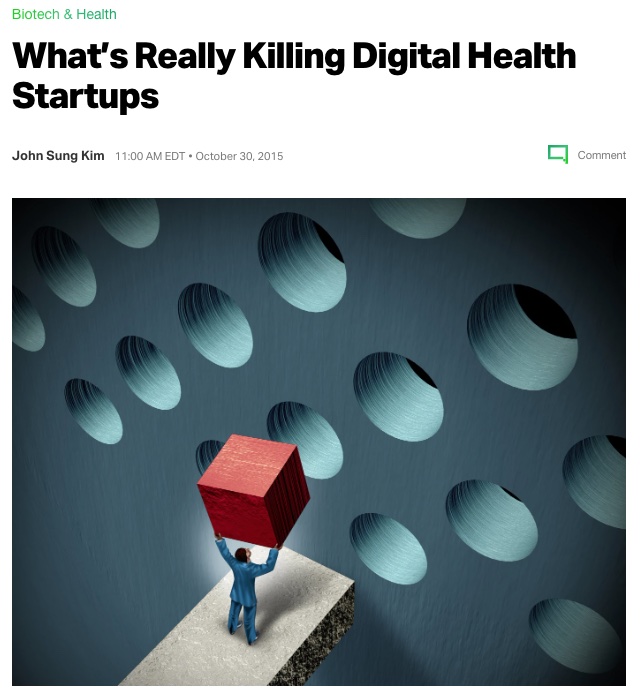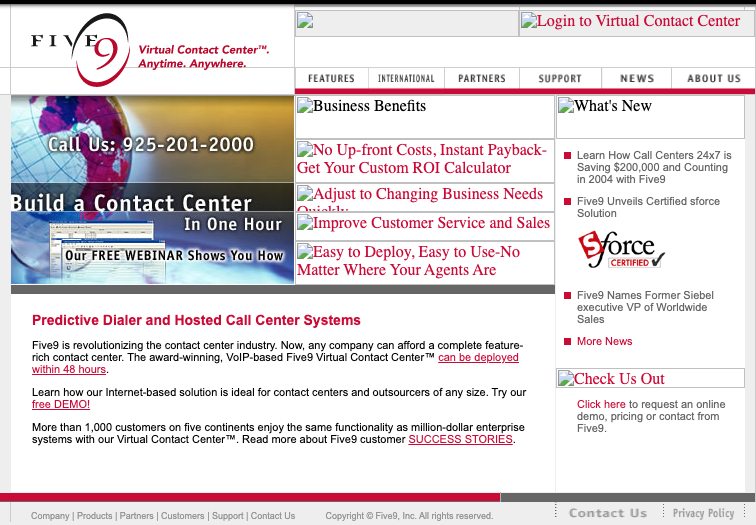
In 2009, I started a digital health company. One of the first people I hired was a sales rep who I’ll nickname “Bruiser.”
Our company’s big idea was to get doctors to message with patients by rewarding them not with money (those attempts by earlier startups had mostly failed) but with verified reviews instead.
Whenever we encountered problems Bruiser would declare, “I’m an immigrant from the toughest part of the world — this is nothing.” His confidence gave the rest of us confidence.
But the more successful our SaaS company became, the more difficult he became. At each growth milestone, he wanted to renegotiate his position with clauses like “anti-dilution guarantees.”
Meanwhile, the business was gaining traction and soon hit $1 million in annual recurring revenues. Before we could celebrate, Bruiser called. He wanted to renegotiate.
I let him go on the spot. “Let’s chat on Monday and figure out your exit package,” I said.
He agreed saying, “I love you but you’re too difficult to work with.”
I remember thinking, “Well that was cordial! I thought he was going to break something.”
On Monday I got a letter from his attorney demanding $750,000.
We didn’t have the money, or an attorney. The closest thing I had was a friend who had just started his own law practice. It was so new I had designed their logo a few months back.
On Monday I gathered my team with my friend the attorney and explained the situation. “I’m worried,” I admitted. “But he’s muscling us and I don’t want to settle. What do you guys think?”
“No. I can’t settle,” said my Operations Manager without hesitation. The others nodded. We were officially embroiled in my first lawsuit.
We responded letting Bruiser’s lawyer know we were fighting.
And then something unexpected happened. Bruiser’s attorney dropped out of the case. But why?
Using the power of positive thinking, I told my team that Bruiser was likely getting a cheaper lawyer.
A week later we got a letter from Cotchett Pitr McCarthy. They were Bruiser’s new attorneys. Known as “Cotchett,” they had successfully sued companies like Eastman Kodak and Citigroup. Their founder Joe Cotchett was described by a popular legal website as “The Bully of Bullies” with the subtitle “Why does Joe win so often?”
So much for positive thinking.
Cotchett introduced us to their firm by sending in a wheelbarrow of documents four feet tall containing every email, contract or anything thing else that could produced from a commercial laser printer.
“Total intimidation tactic, so Cotchett,” marveled my attorney. I was less thrilled.
We had an open floor plan and we stared speechless with looks on our faces like the primates in the movie 2001, where the obelisk suddenly appears and confuses the monkeys.
I broke the silence by getting up slowly from my fake Herman Miller chair and announcing, “We’re going to win. I promise you.”
I’m not sure anyone believed me, but I packed my laptop and went home early. I didn’t want anyone to see me looking stressed. Later that night I brought half of that pile home (my attorney graciously took the other half).
It was time to ping my network. My friend Jay was the former in-house counsel for Twitter. A Harvard educated attorney Jay knew technology and the law, he was brilliant.
“John,” he said, “if you were in a knife fight, with Cotchett Bruiser just brought a gun. You sure you don’t want to settle?”
But I had told my team too much about standing our ground to settle now. If I settled I would lose all credibility.
We continued on as if I was running two operations – my company and this lawsuit. Evenings after work I sifted through documents until I passed out drinking a glass or two of scotch. Maybe three.
Also, I picked up smoking.
My life kept going on like this until my phone rang at 3:00am one morning.
“Get up!” My attorney was shouting like he just discovered who killed JFK. “What year did you incorporate?”
“2009, I think,” I was still groggy. “What time is it again?”
“And when did you buy the .com domain name for your company?” he asked. “Look at the sales contract that Bruiser signed with a customer. What year did you buy the .com name?!”
To me, it looked like a regular sales contract.
“You incorporated in 2009 but bought the domain name in 2010,” said my attorney. “So why does this sales contract from 2009 say the agreement is with the .com name you bought in 2010?”
“Because he forged these sales contracts,” I said, flabbergasted.
There were other sales contracts with the same error. But why would he do this?
“Because Bruiser plans to show that he was instrumental in the success of the company, so he faked these documents,” my attorney said.
I immediately called my Operations Manager. “Get up!” I shouted.
About a week later we demanded an early deposition of Bruiser from Cotchett. One of the lead attorneys at Cotchett asked if we really wanted to do this, saying it was unusual to call such an early deposition. But we called their hand and at the deposition, we presented Bruiser and his attorney with the evidence.
Another week passed and we got a call from Cotchett. They wanted to settle.
“It’s a fraction of the original demand amount,” my attorney marveled.
I balked.
We kept pushing back and running up their expenses until Cotchett caved. I don’t know a law firm’s internal cost structure, but Cotchett ended up getting so little from us (I’ve spent more on domestic vacations) I bet they lost six figures betting on Bruiser.
All successful businesses that are growing will have unethical parasites and contingency attorneys trying to suck off you. Just remember –
- If you build a profitable business early on, you won’t have any VC financing event pressures to be forced to settle, and with recurring revenues you’ll be able to fund the legal battle all the way to trial. Your initial growth rate may be slower focusing on profitability, but you’ll retain more optionality later.
- Parasitic personalities think they’re geniuses (they’re not) and either forget, or willingly try to hide unethical behavior from their contingency attorneys (and their own memories), omissions that will ultimately lose their case at trial. Oftentimes well before.
- After winning, your team will bond and become stronger. It’s a funny thing about us human beings and foxholes.
Ironically, I now occasionally refer new clients to CPM. I liked how formidably they did business and how professionally they conducted themselves, so when a friend needs a type of legal firm like CPM, that’s who I suggest. Which (to me, anyway) means that not only did I win that lawsuit, I made that lawsuit my b*tch.








